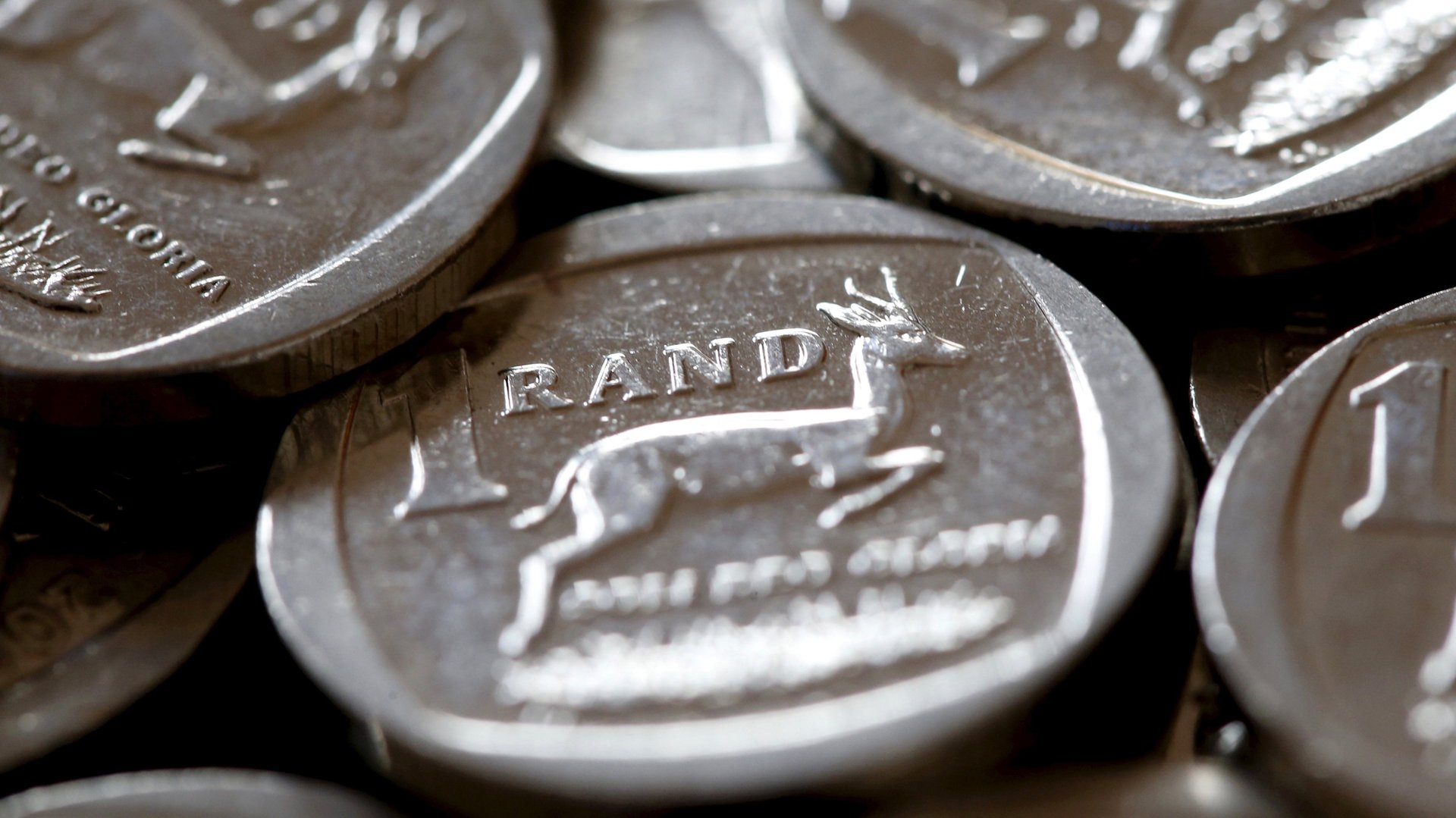South Africa’s troubled rand has turned the corner against the US dollar
South Africa’s jittery currency seems to be calming down. On Wednesday, Jan. 24 the rand pushed past the psychological 12-rand to the dollar barrier.


South Africa’s jittery currency seems to be calming down. On Wednesday, Jan. 24 the rand pushed past the psychological 12-rand to the dollar barrier.
It was the first time since 2015 that the rand broke the barrier, reaching 11.95 to $1 as the Johannesburg Stock Exchange closed. South Africa’s currency has been plagued by volatility in the last two years thanks to a sluggish economy further derailed by a sluggish economy.
Granted, the dollar’s weakness on Tuesday may have given the rand the breather it needed, but South African markets are seeing it as a sign that things are finally improving in Africa’s most advanced—but certainly not largest or strongest and definitely not the fastest growing—economy.
The rand has regained its confidence around rumors president Jacob Zuma may step down before his term officially ends next year. The currency began to loosen up when businessman Cyril Ramaphosa was elected as ANC president in December. Ramaphosa’s insistence that corruption in state-owned enterprises like the national electricity supplier Eskom be weeded out has not only strengthened his pitch in Davos this week, it’s also restored confidence within South Africa.
Even among the public, the rand has been used as a litmus test for how the whole country is doing. It was at its weakest when Zuma shuffled finance ministers in December 2015, going beyond 16 rand to $1. It was flustered every time it looked like Zuma was about to fire finance minister Pravin Gordhan (and then when he finally did).
Currency fluctuations can be rather random, based on the technicalities of a floating exchange rate system and snap decisions of traders. A stronger rand may not actually help South Africa’s economy, rooted in mining and trying to increase its exports. Still, in a country where consumer confidence reached record lows and sovereign ratings downgrades became small talk for ordinary people on the street, the rand’s rosier outlook is celebrated as good news.